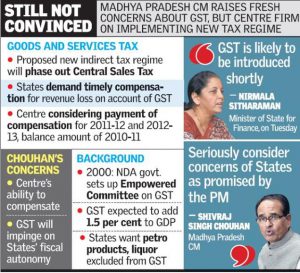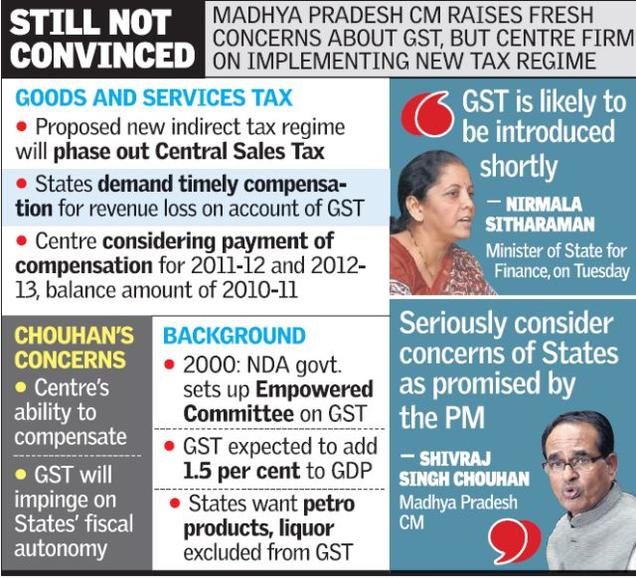IIM-WAT : GST ( Goods and Services Tax)

Key Facts: GST Background
- Goods and Services Tax (GST)Bill 2014 proposes to introduce 122nd amendment in Constitution of India
- Theme of the bill is to replace Central, state/regional level taxation system and implement national level Value Added Tax (VAT) with effect from April 2016.
- GST will be in a form of comprehensive indirect tax on manufacturing, sales and consumption of goods and services within the country
- Once implemented, GST would be based on the input tax method. The tax will be levied and collected at each stage of sale or purchase of goods or services.
Pros: Benefits of GST
- Goods and Service Tax is a right step to move forward with the ‘Make in India’ vision. Implementation of GST will get rid of multi tier and multiple taxation system in the country
- Goods and Service Test -registered businesses will be able to claim tax credit to the value of GST they paid on purchase of goods or services as part of their normal commercial activity.
- GST would be a destination based tax as against the present concept of origin based tax. The tax structure is expected to be much simpler and easier to understand.
- According to a report by the National Council of Applied Economic Research, GST is expected to increase economic growth by between 0.9 per cent and 1.7 per cent.
- Taxable goods and services are not distinguished from one another and are taxed at a single rate in a supply chain till the goods or services reach the consumer.
- Reducing production costs will make exporters more competitive. The reduced cost of locally manufactured goods and services will increase the competitiveness of Indian goods and services in the international market
GST when enforced would eliminate complexities in the present taxation structure and consequently prevent the loss of nearly 50% of the advantage of lower manufacturing costs that India has over the western nations
Single authority will have the administrative responsibility to levy tax on goods and services. Implementation of GST assures a single taxation system in the entire country for all goods and services making tax compliance easier and more effective
Cons: Riders could affect adversely
— May prove detrimental to the growth of small scale industries. Basic exemption limit in excise of Rs. 1.5 Crores will be taken away in GST, which will affect the Small Scale Industries. Lakhs of industries in India are surviving only for one reason that they are not required to pay excise if their turnover does not exceed 1.5 crores.
- Services which hitherto were charged on receipt basis will be charged on accrual basis.
- GST would be required to be paid, once invoice is raised even if there is no certainty of receiving the payments for the services rendered
- In case implementation is not meticulous, losses may be more than earlier.











